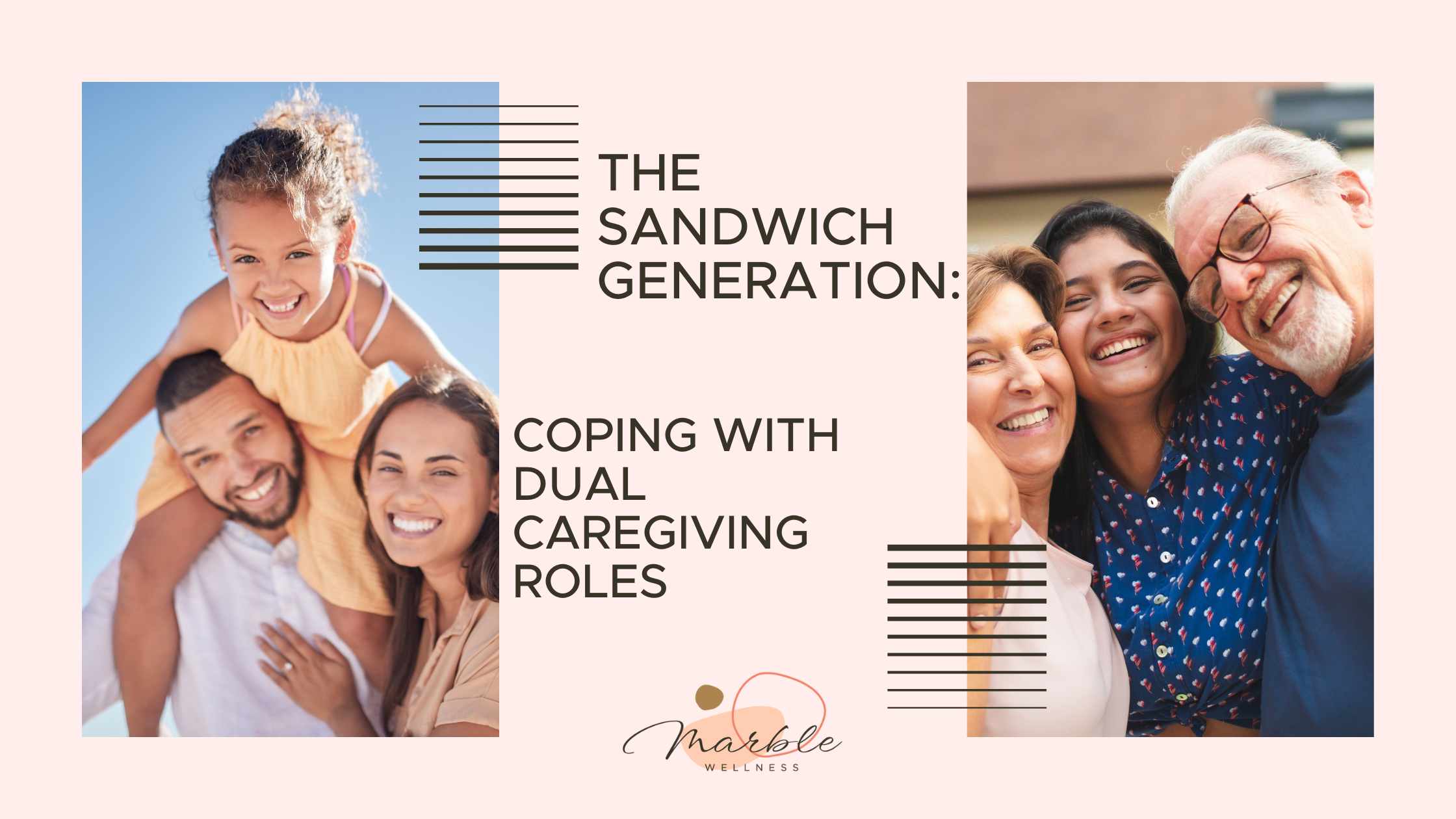Balancing the responsibilities of raising young children while caring for aging parents is a reality for many adults in the sandwich generation. This dual caregiving role can be overwhelming, but it’s also an opportunity to strengthen family bonds and model compassion for the next generation. If you’re feeling stretched thin, know that you’re not alone—and there are strategies and support systems that can help you navigate this challenging season of life.
What Does It Mean to Be in the Sandwich Generation?
The sandwich generation refers to adults who are “sandwiched” between two caregiving roles: raising their own children and supporting their aging parents. This group often includes parents of young children or teenagers who are simultaneously managing the health, financial, and emotional needs of elderly loved ones.
This unique position comes with a mix of rewards and challenges:
- Rewards: Opportunities to deepen relationships with your parents and teach your children about empathy and responsibility.
- Challenges: Time constraints, emotional strain, financial stress, and feelings of guilt or burnout as you try to meet everyone’s needs.
If this sounds familiar, you’re likely juggling multiple roles at once—parent, child, caregiver, employee, and more—all while trying to maintain your own well-being.
The Emotional Toll of Dual Caregiving
Caring for two generations can take a significant emotional toll. You might find yourself feeling:
- Guilt: Worrying that you’re not giving enough attention to your children or your parents.
- Resentment: Feeling frustrated with the constant demands on your time and energy.
- Burnout: Experiencing physical and emotional exhaustion from trying to do it all.
These emotions are normal, but they can become overwhelming if left unaddressed. It’s important to acknowledge these feelings without judgment and seek support when needed.
Common Challenges Faced by the Sandwich Generation
- Time Management
- Between school drop-offs, work meetings, doctor’s appointments, and household responsibilities, it can feel like there aren’t enough hours in the day.
- Financial Strain
- The costs of childcare, elder care, medical expenses, and household bills can quickly add up, leaving little room for savings or self-care expenses.
- Emotional Stress
- Balancing the needs of two generations often means putting your own needs last, which can lead to feelings of isolation and burnout over time.
- Family Dynamics
- Sibling disagreements about caregiving roles or differing opinions on how to care for aging parents can create tension within families.
Practical Strategies for Coping With Dual Roles
If you’re part of the sandwich generation, here are some actionable steps you can take to manage your responsibilities more effectively:
- Prioritize Communication
- Keep open lines of communication with both your children and your parents. Let them know what you’re juggling so they understand why you may need help or flexibility at times.
- Set Realistic Expectations
- Accept that you can’t do everything perfectly—and that’s okay! Focus on what matters most each day and let go of less important tasks.
- Ask for Help
- Share caregiving responsibilities with siblings or other family members when possible. Don’t hesitate to hire professional caregivers if needed.
- Create a Schedule
- Use a shared calendar to keep track of appointments, school events, and caregiving duties. This can help reduce stress by keeping everyone on the same page.
- Practice Self-Care
- Make time for activities that recharge you—whether it’s exercising, reading a book, or spending time with friends.
- Seek Professional Support
- Therapy can provide a safe space to process emotions like guilt or resentment and develop strategies for managing stress.
How Therapy Can Help Caregivers Thrive
At Marble Wellness in Ballwin and Lake St. Louis, we understand how overwhelming it can feel to care for two generations at once. Our therapists specialize in helping caregivers manage stress, anxiety, burnout, and more—so you can show up as your best self for your family without sacrificing your own well-being.
If you’re ready to take the next step toward balance and support, contact us today to schedule an appointment at one of our St. Louis-area locations.
Start Therapy in the St. Louis Area
If you live in the St. Louis metro area and are ready to improve your mental health, our expert St. Louis therapists are here to help. Not only do we have a team of therapists in Ballwin, MO, but we have also recently expanded to serve the Lake St. Louis and Wentzville area! Reach out to our Client Care Coordinator today to discuss your therapy options, both in-person and via online therapy in Missouri.
Contact Us!
Learn About Our Group Offerings

Additional Counseling Services at Marble Wellness in St. Louis, MO
Marble Wellness Counseling services are designed to help set you on a path of living a more fulfilled, calm, and happy life. Our St. Louis area therapists have a variety of training backgrounds and areas of expertise. We specialize in anxiety, depression, grief, chronic illness, therapy for men, couples, and maternal overwhelm. Our practice also helps new moms with various postpartum concerns, moms in the thick of parenting, and moms with teens. We can also chat from wherever you are in the state with online therapy in Missouri. No matter where you are in your journey, we are here to help you thrive!



